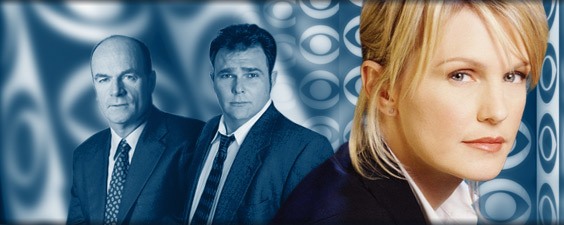In Praise of "Cold Case"

I’ve become a regular viewer of CBS’ new crime drama, Cold Case [Sunday night, 8 p.m.]. Like many of the new shows, it combines the elements of forensic science that we see in CSI and CSI:Miami and an attractive protagonist, but its real hook is philosophical, even spiritual. By the conclusion of each episode there is ultimate justice, and something more.
The presentation is the same each week. The opening scene shows the circumstances of a decades-old murder or missing-persons case. We know we are watching the past because the scene is shot in monochrome. We know the approximate period because of the background music and the characters’ garb and manner of speech. The mystery is unsolved, or, in some variations, “solved” incorrectly.
In 2003 new evidence comes to light. Frequently it’s in the form of a witness, who, wracked by guilt, finally comes forward. Last Sunday it was a tape recording of the fatal gunshots; the tape was dropped on the detective’s desk by someone who turned out to be present at the crime scene.
The problem is turned over to the new kid on the block, Detective Lilly Rush, played by Kathryn Morris, because none of the grizzled veterans wants to get his hands dirty or waste his time on these stale cases. [Side remark re the audience’s willingness to suspend belief: if any detective made a regular habit of solving twenty-year-old murders, he or she would be hugely famous, but Detective Rush is still the junior person on the totem pole, much as Columbo never made it past Lieutenant despite nailing a celebrity week after week in very high-profile murders.]
Modern criminal science, e.g., DNA analysis, fingerprint matching, and digital enhancement of video or audiotape, is applied to the new and old evidence from the case files, and …….the case is re-opened! So far we are only ten minutes into the drama, and now the fun begins.
The police track down witnesses, suspects, and victims (even the dead have more tales to tell because of modern forensics). We see what became of people many years later and how they were affected by the original crime. Special effects and make-up are light-years ahead of TV shows that were made in the ‘70’s and ‘80’s, and an actor can believably play the same character separated in time by thirty years.
Kathryn Morris is Meg Ryan without the perkiness [side remark #2: a Google search of “Meg Ryan” and “perky” results in over 4,000 hits, although Ms. Ryan is the opposite of perky in her new movie ]. Her winsome appearance belies her intense pursuit of the truth. During the interviews Detective Rush intrudes on witnesses’ personal space and lobs insinuating remarks indiscriminately, striking guilty and innocent alike. Presumably it’s too early in the life of the series both to play driven avenger and have a romantic backstory, so empathy with the protagonist will have to wait. The story cycles between witness interviews and the crime lab, and voila, the case is solved.
The presentation of the last scene, like the first, has become a series convention. As the perpetrator is led off to jail, time slows, and all who were affected by the crime re-appear. The past and present selves of the guilty, the innocent, and the bereaved are simultaneously present, looking on. And, finally, we see the long-dead victim nod in acknowledgment to Detective Rush, who gazes intently back.
The surrealistic coda is not absolutely essential to the story, but it distinguishes Cold Case from other series in the crime genre and lends it its spiritual dimension. On one level, perhaps the simplest, it seems to say that justice cannot be denied because actions have eternal consequences. On another level, by juxtaposing old and young versions of the characters, it communicates the idea that there is an essence (dare I say soul? but this is not an overtly “religious” show) in each person, not affected by the passage of time. Although I have come to expect it, the closing minutes cause me to look at everything that came before in a different light, just as did the final communion in the 1984 movie "Places in the Heart".
The conventions in this unique show I currently find appealing. When the newness wears off they may well become repetitive and boring, but until then I’ll be watching.
copyright by Stephen Yuen

